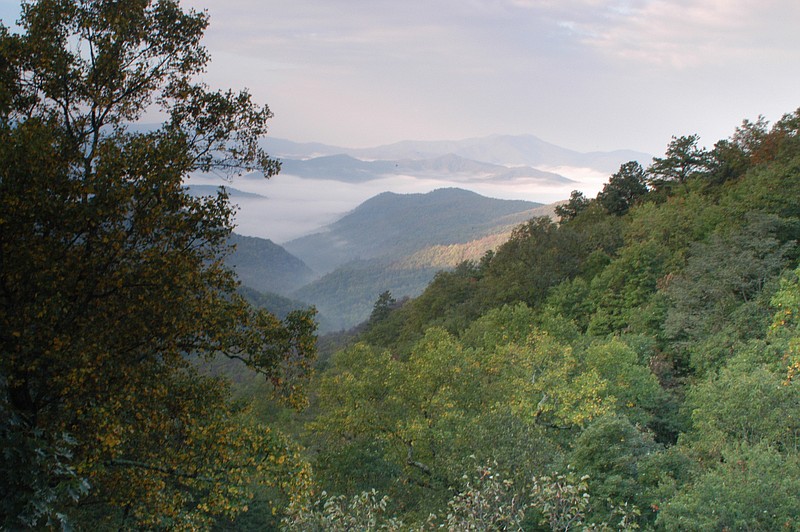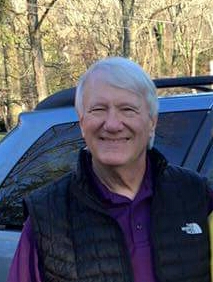When President Ronald Reagan signed the Tennessee Wilderness Act into law 32 years ago last week, the Act created the Big Frog, Citico Creek and Bald River Gorge wilderness areas. These places in the Cherokee National Forest play a critical role in preserving the health and wellness of current and future generations of Tennesseans.
As a pediatric hematologist/oncologist, I wholly appreciate the gifts that natural areas like the Cherokee National Forest give us. We rely on trees for clean air, and we depend on protected watersheds for clean drinking water. Also, as the Scoutmaster of a Boy Scout troop for 25 years and an active member of three hiking clubs, I also recognize that we need places to exercise outside while we let our troubles go for a while. Much literature today exists on the health and psychological benefits of getting outdoors in nature, beginning at an early age.
The Cherokee National Forest spans 655,598 acres, but only roughly 66,000 acres are designated as wilderness. These areas offer backcountry activities like hunting, fishing, kayaking and rafting as well as camping, hiking and backpacking. For scientists and students, wilderness serves as a living laboratory for research and development. And for many others, these wild spaces also offer a chance to escape the hustle and bustle of our everyday lives.
One place that was protected by the 1984 Tennessee Wilderness Act in the Cherokee National Forest is the Big Frog Wilderness Area. Nestled in the southeast corner of East Tennessee, it features some of the world's oldest mountains and offers pristine waterfalls and roughly 35 miles of unspoiled backcountry trails. It also serves as a sanctuary for black bears, deer, turkey, and other wildlife that reside in the area.
The wilderness area's namesake, Big Frog Mountain, rises nearly 4,300 feet, providing many popular hiking trails to the summit, including the Benton MacKaye Trail, which runs some 300 miles from Springer Mountain in Georgia to the north end of the Smokies. It is named for Benton MacKaye, the founder of the Appalachian Trail. Though the Appalachian Trail was eventually routed further to the east, the route over Big Frog was always Benton MacKaye's preferred route. It is from here that people can view the incredible Great Smoky Mountains and breathe the fresh mountain air.
Currently, there is legislation pending before Congress to expand the Big Frog Wilderness. The Tennessee Wilderness Act of 2015 would safeguard roughly 20,000 acres of wilderness in the Cherokee National Forest by expanding a total of five wilderness areas and creating the new Upper Bald River Wilderness Area. No privately owned land would be affected, and activities like hunting and fishing would continue as permitted today.
All lands within the proposed act are currently owned by all of us, being a part of the Cherokee National Forest. These lands are currently being maintained per wilderness guidelines since they are in Wilderness Study Areas. Thus nothing will change once they are designated as true wilderness, except that it will be guaranteed that they will stay as wilderness so that we and our children can enjoy them forever and that they cannot be spoiled by logging or mining or other unsuitable development or extraction activities.
Sens. Lamar Alexander and Bob Corker have introduced this bill every congressional session over the past eight years, but Congress has failed to act. It is time for our senators to demonstrate their leadership skills and move this bill through Congress.
Sadly, these 20,000 acres are in danger of unnecessary development if our elected officials do not act. Across the country, especially out West, we are seeing public lands and waters disappearing at an alarming rate. And once they are gone, they are gone forever.
As we take to the outdoors this fall, let us not take these wild spaces for granted. Whether your adventures take you through the mountains of Big Frog Wilderness or somewhere else inside the vast Cherokee National Forest, remember that without action from Congress, these areas are not guaranteed for the next generation to enjoy.
Therefore, on this the anniversary of the passage of the Tennessee Wilderness Act, I urge our senators to do everything they can to ensure that these areas will be protected for years to come.
Chattanooga native Dr. Richard Harris, a retired physician and current resident of Tellico Plains, lives near the Upper Bald River Wilderness Study Area and the Bald River Wilderness, and the Citico Creek and Slickrock Joyce Kilmer Wildernesses. He is an active hiker and Scout leader, participates in trail maintenance in the Tellico/Ocoee areas and along the Benton MacKaye Trail, and sits on the Tennessee Greenways & Trails Council of Tennessee Department of Environment and Conservation.

